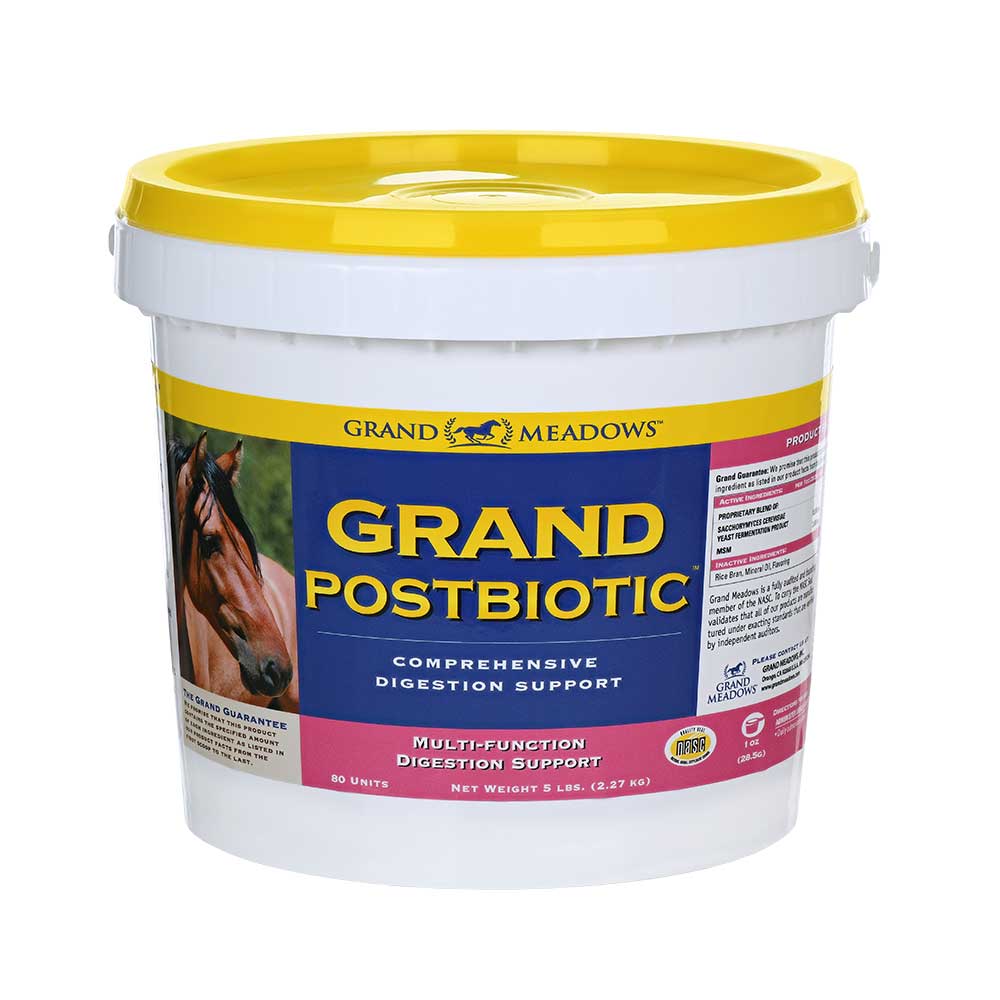Horse Health
Prebiotics and Probiotics—A typo or Is There a Real Difference?
In recent years digestion has leapt several places up the ladder in terms of horse owner’s concerns leading to all kinds of new products and marketing gimmicks to drive customers to a particular brand e.g., FREE colic insurance for all! If we tried to go address all the different elements affecting digestion in one blog it would attain the size of War and Peace with readers falling asleep or seeking counseling, so we are going to zip in and zip out periodically.
For years probiotics have been the benchmark products for “digestive issues,” however the Albert Einstein/Isaac Newton-like team at Grand Meadows had some pretty fundamental concerns about their overall effectiveness.
A probiotics label will read “X billion CFU colony forming units”—these are live yeast cells that will travel through the digestive tract, arriving in the large intestine to add to the existing pool of beneficial bacteria, feverishly laboring away as they try to digest all the starch gases and more indigestible fibers, mainly lignans and cellulose. These live yeast cells are subjected to what can only be called mass genocide as they pass through the rather convoluted equine gastrointestinal tract. First they are splashed with hydrochloric acid in the stomach—never a nice way to start your day, and then they spend 6-8 hours in the small intestine being attacked by enzymes. If you listen closely you can hear the heartfelt cries of whole families of CFU’s dying by the millions and no one seems to care. Only a few hearty souls cross the finish line to the large intestine.
Couple this massacre with the fact that at any given time there are over 44 known species of beneficial bacteria living in the large intestine, some of them live for hours, some for days. It is estimated that the numbers of specific bacteria can change over 100 times in 24 hours. Pairing the good bacteria with the new arrivals is like trying to get the ping pong ball into the floating cup at the carnival—the odds are stacked against you. The poor sadly depleted probiotic is rather inefficient.
The team at Grand Meadows prefer prebiotics because they act as a food source for existing beneficial bacteria. This is more like the Berlin airlift providing the food the bacteria needs to reproduce, live longer and more fulfilling lives—and perhaps even have some offspring go to college. Prebiotics, as inanimate entities, bravely soldier through the GI tract arriving in the large intestine to provide a well-balanced meal for the whole crew. Another very cool aspect of our particular prebiotic is that it also acts as a mannon-oligasaccharide—try saying that ten times fast—scavenging harmful bacteria in the stomach and small intestine and enhancing the immune system.
Probiotics are not a bad thing, per se, but feeding prebiotics is much better public policy.
As always the team at Grand Meadows and I are available for your comments or questions.


